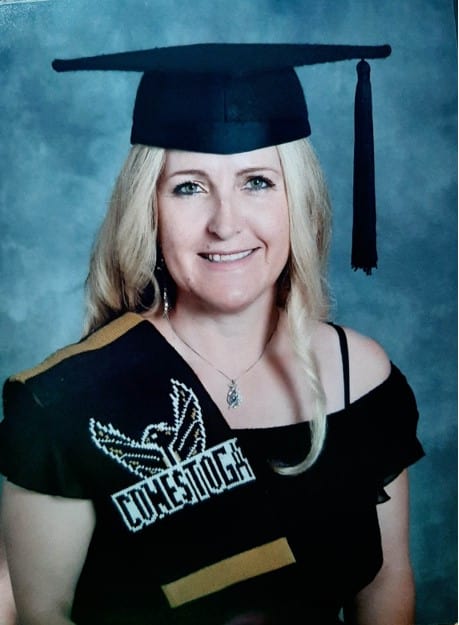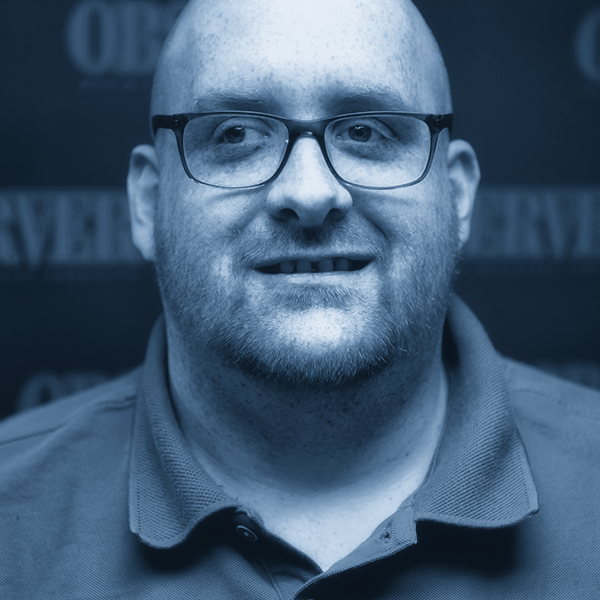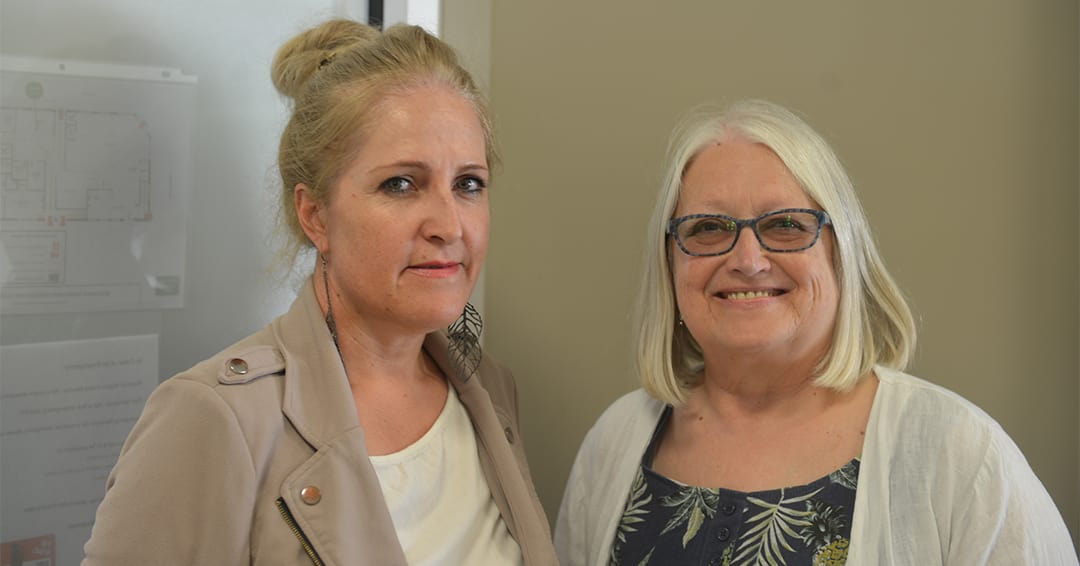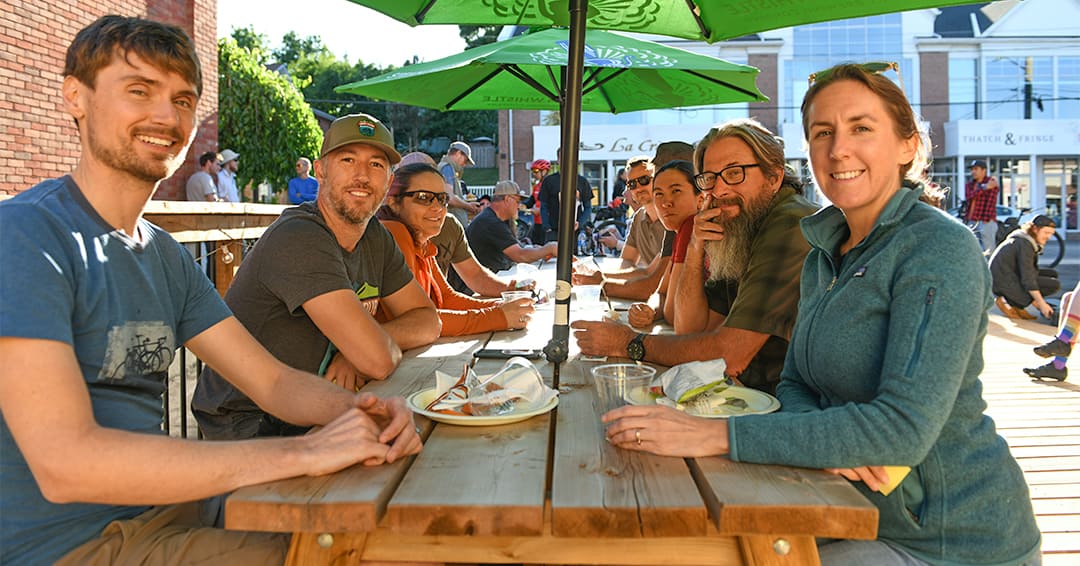Being a Low German Mennonite from Mexico, Anna Wall had quite the journey processing her identity.
“It took me years to sort of settle in an area and be comfortable in my own skin. I was always sort of torn between the three: Mexican, Low German speaking and Canadian. Where does one quite fit in there? I still feel torn sometimes, but I can deal with it better now,” said Wall
So much so that she is now in a position to support others like her through the longstanding program offered by the Woolwich Community Health Centre. She’s the new support worker, having taken over for Brenda Gingerich, who’s retiring after more than 20 years in the role.
“I love Canada, I love the opportunities that are here, the life that I get to live here, but I forever miss Mexico, the country, the weather, the Mexican culture, the food. And then I miss a few things about my colony. And of course, the people there –, my family still lives there,” Wall added.
The Low German Mennonites have a history dating back to their migration from Russia to Canada in the 1870s, where they built colonies in Saskatchewan and Manitoba. However, in the 1920s Canada’s anti-German sentiment, combined with mandatory school attendance led to another relocation. In 1922 some 6,000 Low German-speaking Mennonites left Manitoba and Saskatchewan for Mexico. Since the 1970s there has been a steady increase of these Low German Mennonites, including Wall, migrating back to Canada. Many of the Low German Mennonites are entitled to Canadian citizenship through their parents or grandparents.
Since the 1990s the Low German support worker at community services has been providing support to the population in several areas, including transportation to and from appointments, translation services and guidance on signing important documents.
Wall, who was recently hired in the role, explained that half the Low German population will sign anything that is put in front of them, while the rest will be reluctant to sign anything at all.
“[Half] just trust that the person that is asking us to sign stuff is a good person and has a reason for doing it. And then others are very wary of the government or any other entities that might get us into trouble; half the time, you don’t know what we’re signing. Here you sign for everything, and where we grew up women especially didn’t sign for anything. We didn’t have to know how to write our name or sign our names,” she explained.
A lot of little things that people take for granted are a big deal when you’re in a foreign country with a new language, Wall said.
“Everything you do is foreign. The food you eat the people you see, the community you’re in. Like a simple confirmation phone call for an appointment. At the grocery store, they ask you for a nickel instead of a dime. And you’re like, ‘what does that mean? Can you pick from my coins? Because I don’t know what you mean.’ And then you get nervous because people are waiting in line and you think you did something wrong,” she added.
Wall came to Canada at 16 having already been married. Three years later she was separated and lacking a regular education she enrolled in school at a kindergarten level.

“I was lucky enough to have good people in my life that encouraged me and kind of walked me through that, here, people go to school for a long time. So once I kind of accepted that and started school and got over that sort of shame that I am 19 years old and I’m starting kindergarten, I actually started enjoying school. Because I didn’t have much to unlearn or to change the way I had learned, I actually learned quite fast. It took me two years to go from kindergarten level to a Grade 12 diploma,” she explained.
Following years of factory work Wall started volunteering for Woolwich Community Health Centre in 2007 where she had the opportunity to use her Low German language.
“And that’s where I realized that I watched all the women running the programs and using their language in their work. That’s when I really caught on that my language was actually an asset, not a shameful thing.”
This eventually led her to the new role supporting the Low German population. Wall is taking over the role from Gingerich, who is retiring after being in the position since 2001.
While Gingerich was reluctant to talk about her accomplishments over the years – “I don’t do proud,” she explained – she has seen increased independence among the population.
“The women are way more independent, some are doing their own appointments, scheduling them and doing them and they don’t need translation. In the beginning, we were driving just about everybody. The women didn’t have their driver’s license. We only provided literacy and learning. So they did that all by themselves. It’s not something we did. I’m just glad we can run those programs,” said Gingerich, who grew up as a Low German Mennonite in Canada.
Gingerich is “thrilled” to see the importance of mental well-being being acknowledged amongst the population.
“They are able to go contrary possibly to their belief system, or what they have been taught that you don’t need to tell anybody else, what’s going on with you. And they are willing to see counselors. And I’ve been able to be a part of that,” she explained.
While Gingerich did have people she was close with and will wonder about she said she is leaving them in good hands with Wall.
“That’s a relief. So I’m happy to move on,” she said.
Wall hopes to build on the work of Gingerich to empower Low German women.
“I have a goal in mind… to really promote education and really model that women are valued in this industry or work in the workforce, especially in this area. And my goal is by the time I retire, that there will be a lineup of women who are eager to follow my footsteps into this career,” she said.
“Really empowering the community by walking with them and teaching them in modeling life here in Canada and really making them feel like they can do anything.”









